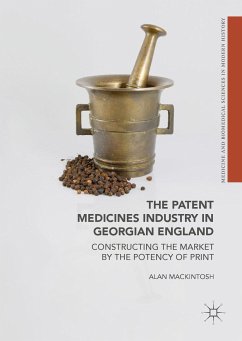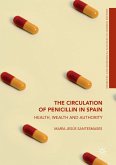Dieser Download kann aus rechtlichen Gründen nur mit Rechnungsadresse in A, B, BG, CY, CZ, D, DK, EW, E, FIN, F, GR, HR, H, IRL, I, LT, L, LR, M, NL, PL, P, R, S, SLO, SK ausgeliefert werden.
"This is an interesting book that explores uncharted waters or, more exactly, looks differently at waters that had previously been analyzed, but in a superficial way. It fills a gap in the history of pharmacy and medicines, between the continuity of ancient and medieval tradition that slowly faded up to the late 16th century and the development of modern chemistry and the industrial revolution, leading to the creation of the pharmaceutical industry." (Alain Touwaide, Doody's Book Reviews, April, 2018)









